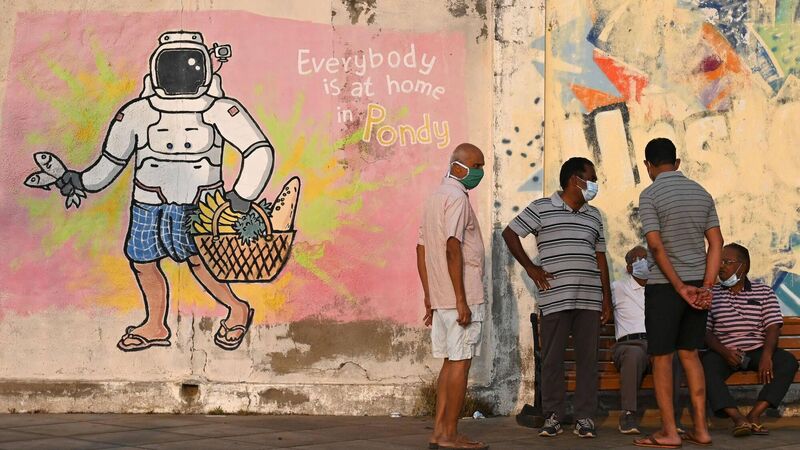Samugam settlements are at risk without funds to stay afloat

People sit near a wall mural in the French quarter of Pondicherry on February 9, 2021. Picture: Punit Paranjpe/AFP via Getty Images
Try from €1.50 / week
SUBSCRIBE
People sit near a wall mural in the French quarter of Pondicherry on February 9, 2021. Picture: Punit Paranjpe/AFP via Getty Images
WHEN we arrived at the Jally childrens’ home at the end of a maze of tiny higgledy-piggledy streets, in the less salubrious neighbourhoods of Pondicherry — out raced happy smiling children.
Yes that’s the cliché description, except this time the cliché is apt.
Already a subscriber? Sign in
You have reached your article limit.
Annual €130 €80
Best value
Monthly €12€6 / month
Introductory offers for new customers. Annual billed once for first year. Renews at €130. Monthly initial discount (first 3 months) billed monthly, then €12 a month. Ts&Cs apply.
CONNECT WITH US TODAY
Be the first to know the latest news and updates
Newsletter
Sign up to the best reads of the week from irishexaminer.com selected just for you.
Newsletter
Keep up with stories of the day with our lunchtime news wrap and important breaking news alerts.
Newsletter
Sign up to the best reads of the week from irishexaminer.com selected just for you.
Saturday, February 7, 2026 - 9:00 PM
Saturday, February 7, 2026 - 9:00 PM
Saturday, February 7, 2026 - 11:00 PM
© Examiner Echo Group Limited